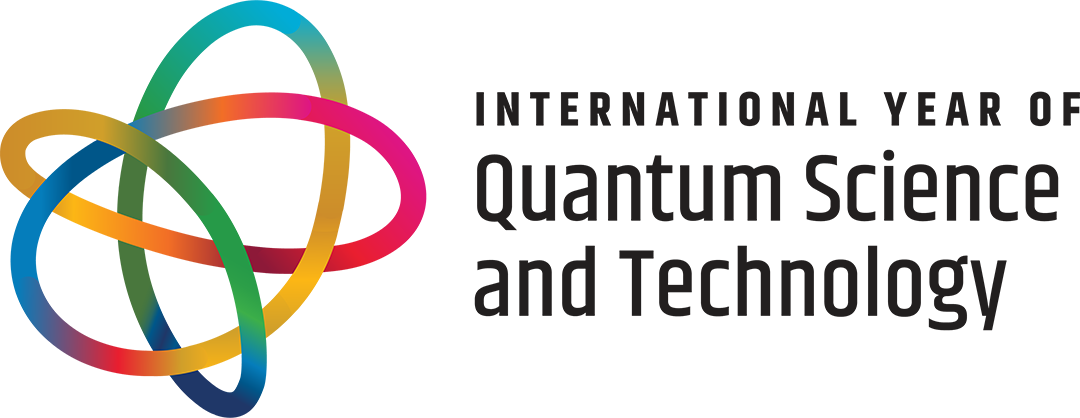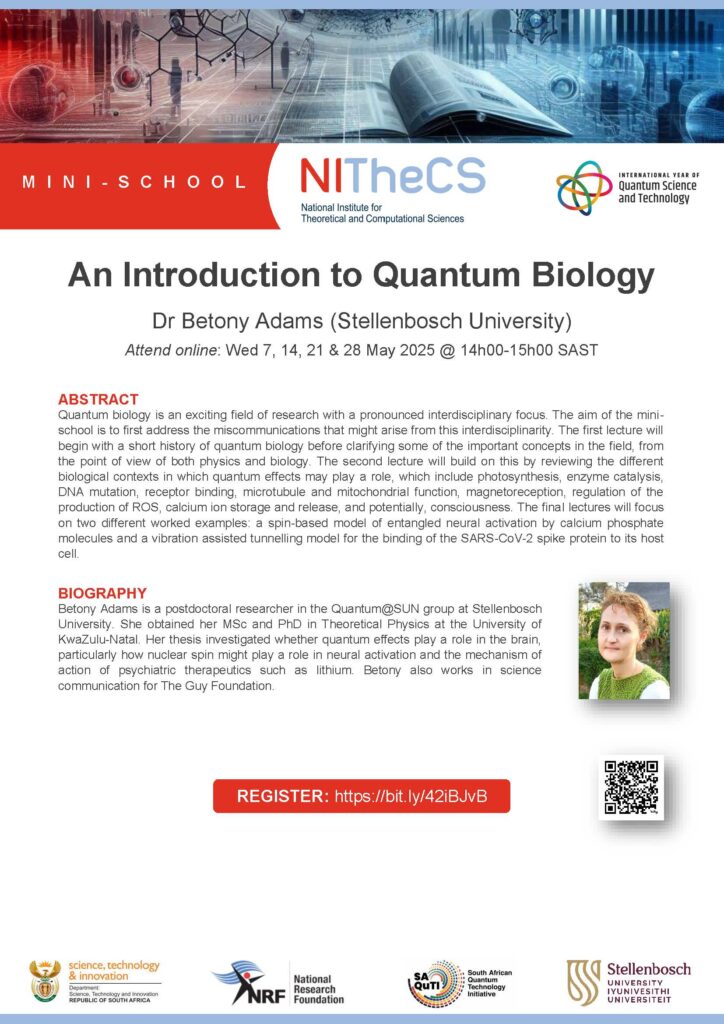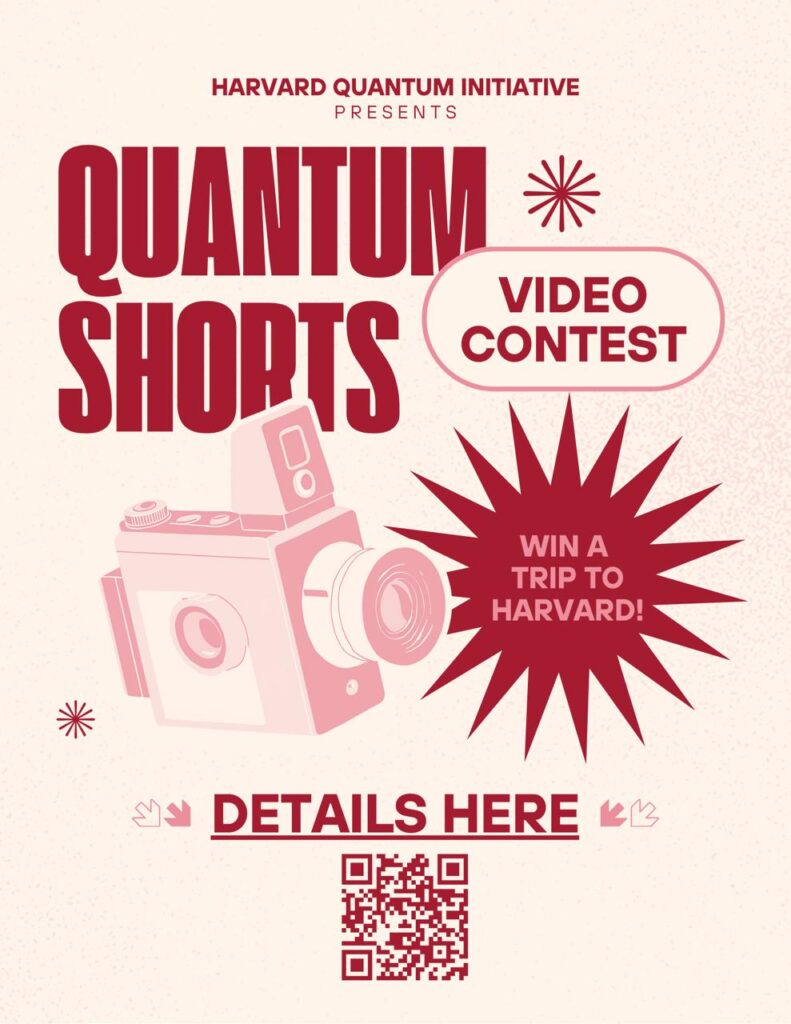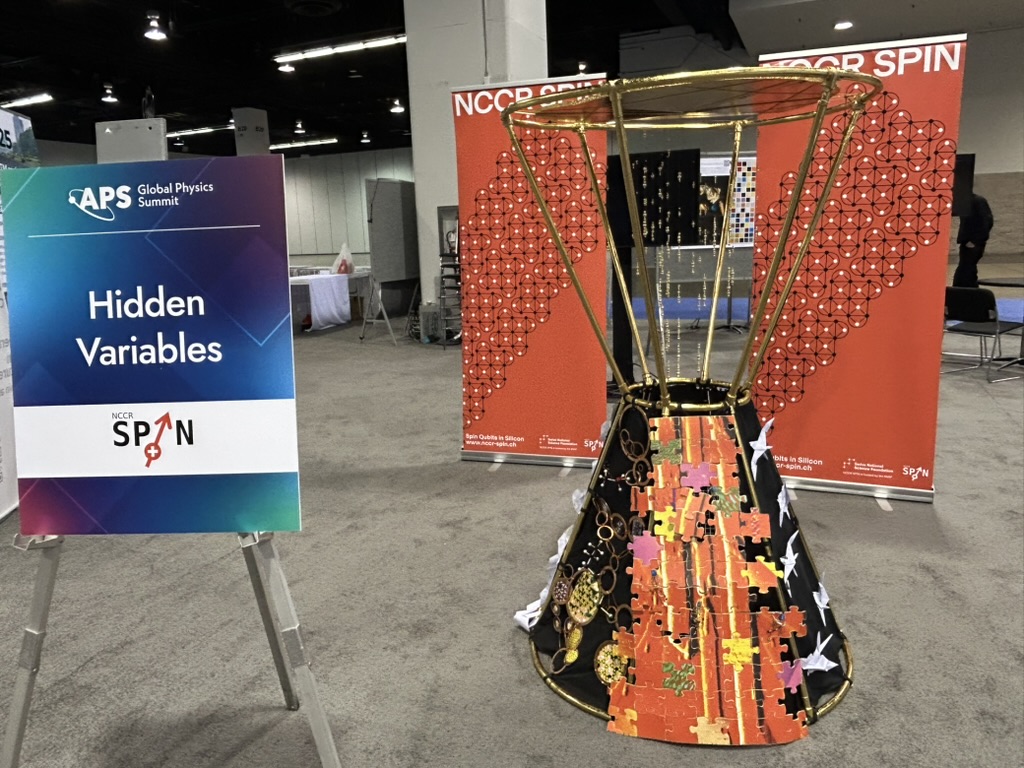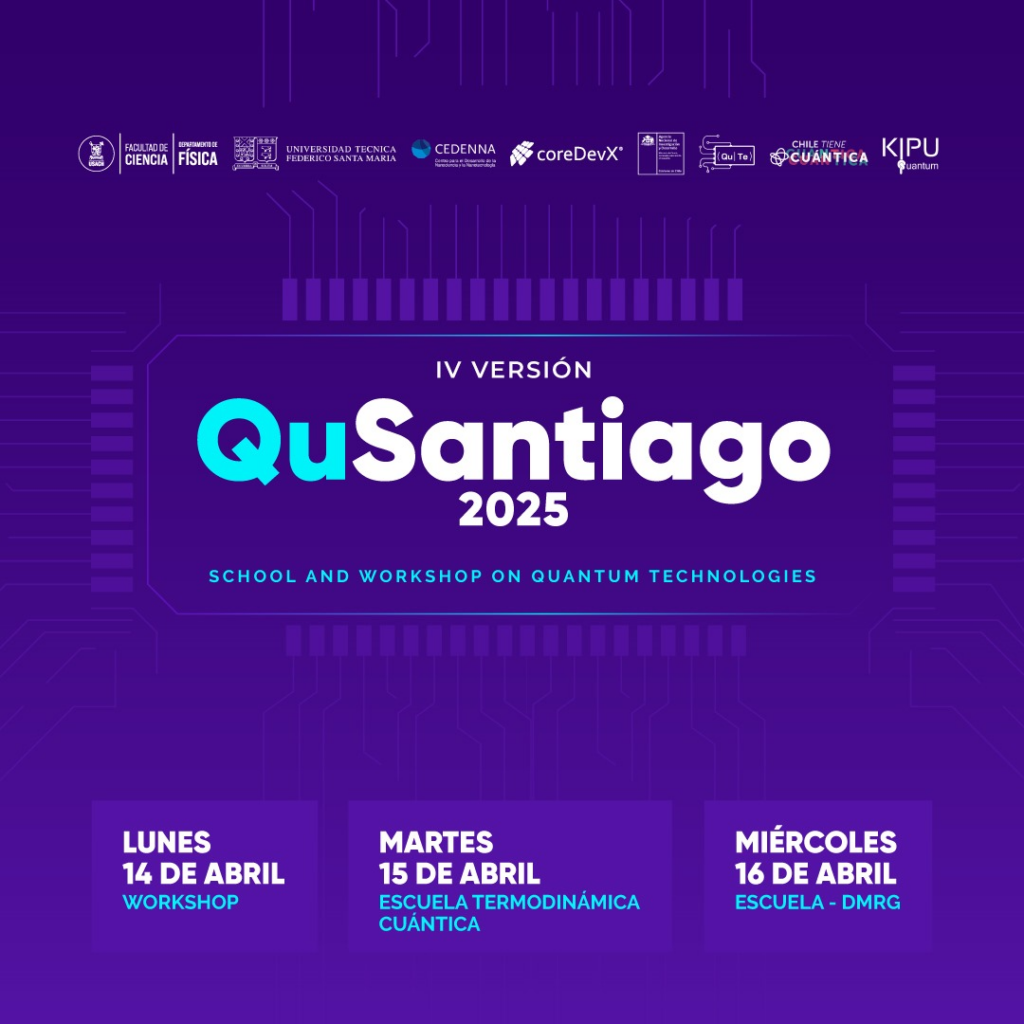Quantum Key Distribution (QKD) has emerged as a revolutionary technology for secure communication, leveraging the principles of quantum mechanics to ensure unbreakable encryption. Recent advancements in space-based QKD have enabled global-scale secure communication by utilizing microsatellites as cost-effective and efficient platforms for key distribution. Here, we will be presenting our recent groundbreaking results on the first quantum satellite link implemented in the Southern Hemisphere and the longest intercontinental ultra-secure quantum satellite link of 12,900 km between South Africa and China.
NITheCS Mini-School – An Introduction to Quantum Biology
Quantum biology is an exciting field of research with a pronounced interdisciplinary focus. The aim of the mini-school is to first address the miscommunications that might arise from this interdisciplinarity. The first lecture will begin with a short history of quantum biology before clarifying some of the important concepts in the field, from the point of view of both physics and biology. The second lecture will build on this by reviewing the different biological contexts in which quantum effects may play a role, which include photosynthesis, enzyme catalysis, DNA mutation, receptor binding, microtubule and mitochondrial function, magnetoreception, regulation of the production of ROS, calcium ion storage and release, and potentially, consciousness. The final lectures will focus on two different worked examples: a spin-based model of entangled neural activation by calcium phosphate molecules and a vibration-assisted tunnelling model for the binding of the SARS-CoV-2 spike protein to its host cell.
Harvard Quantum Shorts Contest
In celebration of the International Year of Quantum Science and Technology, the Harvard Quantum Initiative invites students ages 14–19 to participate in an exciting global competition!
Create and submit a short video that explores a topic in quantum science—whether it’s quantum computing, entanglement, superposition, or any concept that inspires you. This is your chance to showcase your scientific insight, creativity, and passion for discovery.
Selected winners will receive an exclusive opportunity to visit Harvard’s cutting-edge quantum research facilities and meet world-class scientists.
Physics for Society: A New Colloquium Series by UNESCO and IUPAP
UNESCO and IUPAP are launching a new online colloquium series to explore how physics can drive positive change for society. This year’s theme: Quantum Science and Technology, aligned with the International Year of Quantum Science and Technology (IYQ 2025).
We are honored to open the series with Prof. Anne L’Huillier, 2023 Nobel Laureate in Physics, whose groundbreaking work in attosecond science reshaped our understanding of electron dynamics.
She will speak on:
– Attosecond light pulses in quantum science
– Her journey as a woman scientist in a frontier field
This interactive event will spark dialogue across disciplines and regions — from fundamental science to real-world impact.
Birds of Science
Birds of Science is a collaborative art and science project in which participants craft origami birds from the pages of their scientific writings or their notebooks. These origami birds come together as they are created to form a breathtaking large-scale installation, symbolizing the knowledge, science, and the collective journey of ideas taking flight.
Birds of Science is created and directed by NCCR SPIN.
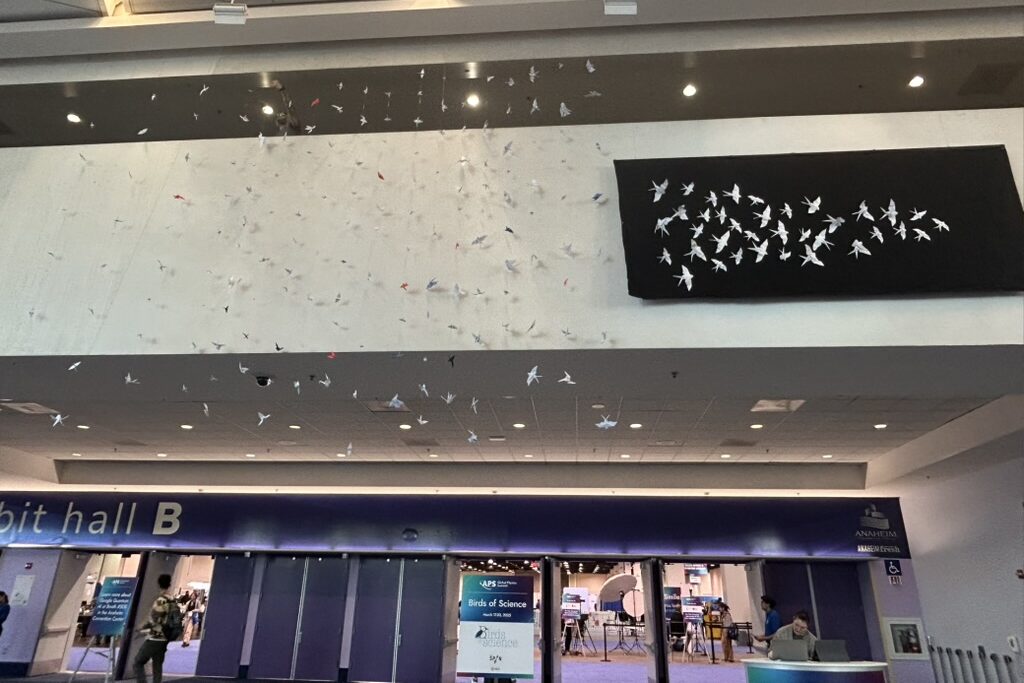
NCCR SPIN
Hidden Variables is a 3D art and science installation co-produced with young researchers at the NCCR SPIN in Switzerland. It was realized using discarded scientific data from theory or experimental equipment and measurements to highlight the important role of failure in the scientific journey.
Hidden Variables
What lies behind a single scientific breakthrough? A journey of trials and errors, ups and downs, successes and failures, and above all, an investment of time. At the intersection between art and science, a team of six dedicated quantum computing scientists comes to show you the hidden beauty within lost data and failed measurements – essential components in the pursuit of even the most subtle scientific insights.
Superposition Composition: Grüße Unscharf
A durational sonic installation by ZKM | Hertzlab
The artwork—an installation featuring a self-playing piano that performs a composition by composer Jia Liu twice daily—makes audible the quantum mechanical principle of superposition. In quantum computing, superposition refers to the ability of quantum bits (qubits) to exist in multiple states simultaneously. Unlike classical bits, which always have a value of either 0 or 1, qubits can assume multiple states at once until their value is determined by measurement.
The composition includes variable elements that take on specific values based on certain probabilities. These values are recalculated for each performance using a quantum computer. Each playback thus represents a measurement, fixing the state of the composition. Only through repeated performances does the final composition emerge as a percentage-based probability pattern—this version will have its world premiere at ZKM | Karlsruhe in December 2025.
The composition will be performed twice daily (11 a.m. and 5 p.m.) on the music balcony of ZKM Karlsruhe from April to December 2025. A complementary data visualization will accompany the installation.
Public Measurements: Daily at 11 a.m. & 5 p.m. until December 2025
Quantum Day@PT
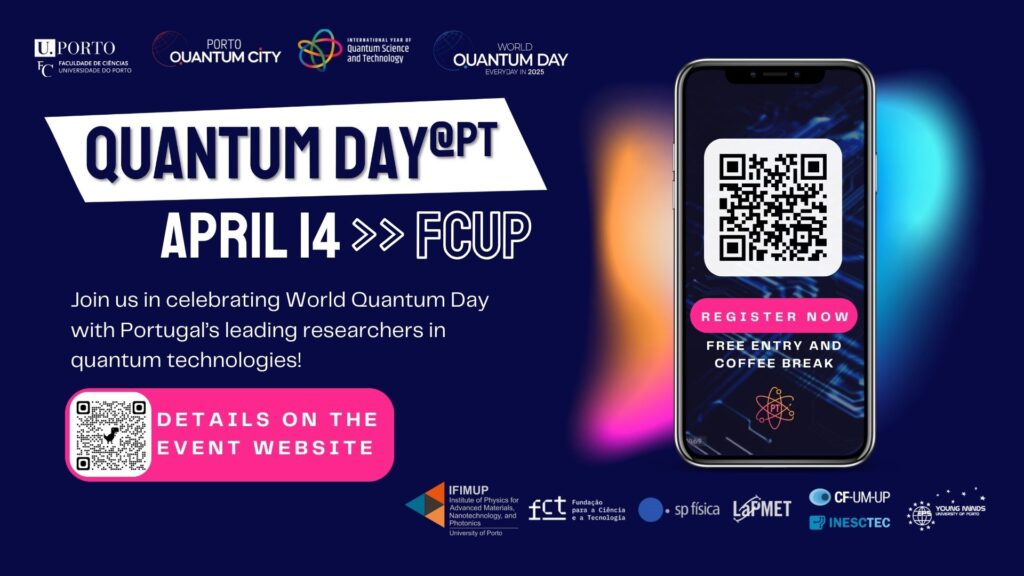
Join us on April 14th for the first edition of Quantum Day@PT, a one-day event held at the Faculty of Sciences, University of Porto, in celebration of the International Year of Quantum Science and Technology and marking the 100th anniversary of Quantum Mechanics!
📅 When? April 14th – World Quantum Day
📍 Where? Faculty of Sciences, University of Porto
🔹 Registration is FREE and includes morning and afternoon coffee breaks.
This free event will feature plenary talks, themed sessions by renowned speakers, and a poster session aimed at PhD Students and Post-doctoral researchers from various institutes in Portugal, showcasing cutting-edge Portuguese research on the Quantum Flagship topics.
Registration is open to researchers, students, and industry professionals interested in the latest advancements in quantum technology, offering valuable networking opportunities to foster collaborations between academia and industry.
For more details and to register for the conference, visit our website: https://quantumdayatpt1.my.canva.site/
Stay tuned to find out more!
Quantum Machine Learning Workshop
This workshop provides an introduction to Quantum Machine Learning using PennyLane and PyTorch, with hands-on exercises and take-home challenges. The workshop includes four practical sessions that cover the QML concepts, models, and techniques. The sessions explore the development of quantum estimators and classifiers, their training with various optimisers, loss and cost functions, as well as model testing and scoring using variety of metrics. It finally, explains how to create hybrid quantum-classical QML models.
QuSantiago IV
En esta edición especial del QuSantiago, el encuentro dedicado a la investigación y desarrollo en tecnologías cuánticas, nos complace en anunciar su realización durante el presente año, reafirmando su compromiso con la excelencia académica y el avance científico. Este evento, que se llevará a cabo en conjunto con la Universidad Federico Santa María (Campus San Joaquín) y la Universidad de Santiago de Chile (USACH), representa una oportunidad única para el intercambio interdisciplinario entre instituciones de alto prestigio.
Enfoque Temático
En esta edición se abordarán dos ejes temáticos de alta relevancia en la investigación cuántica:
Sistemas Cuánticos Abiertos (USM)
Exploraremos las bases de computación cuántica y topología para entender la relevancia del anuncio de Microsoft y su nuevo chip Majorana. Además de comprender las bases de otra de las áreas más contraintuitiva como la termodinámica cuántica, donde se abordarán aspectos fundamentales para entender los ciclos termodinámicos básicos y su relevancia en máquinas y baterías cuánticas.
Técnicas para el Cálculo de Sistemas de Muchos Cuerpos (USACH)
Técnicas para el cálculo de sistemas de muchos cuerpos: Con la limitación de los computadores cuánticos actuales, técnicas para el estudio de sistemas de muchos cuerpos como Tensor Network tienen gran relevancia en estos días. En esta instancia abordaremos los aspectos básicos para cálculos que involucren Hamiltonianos de muchos cuerpos, como los es la técnica de Density Matrix Renormalization Group y cómo esta evoluciona a tensor network.

